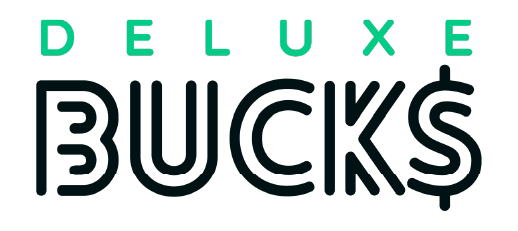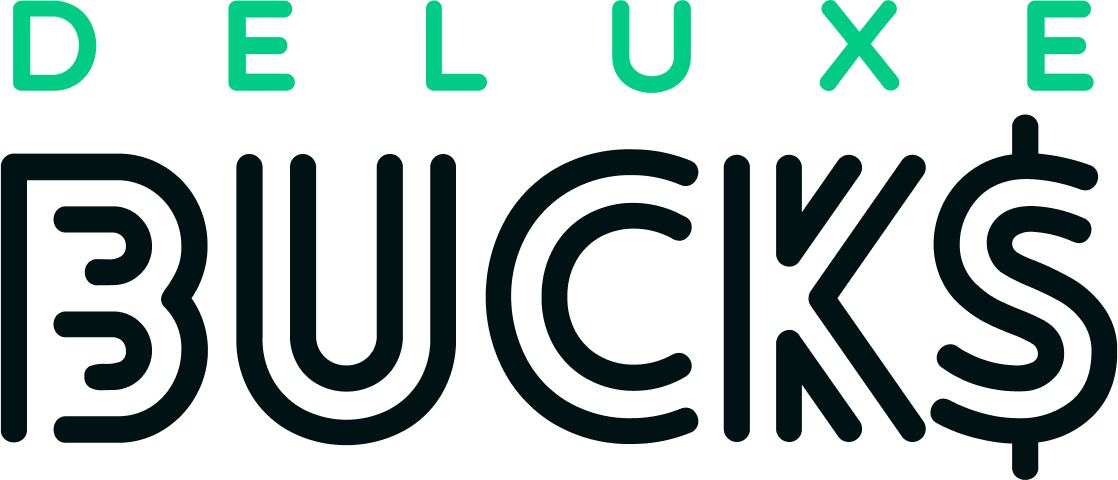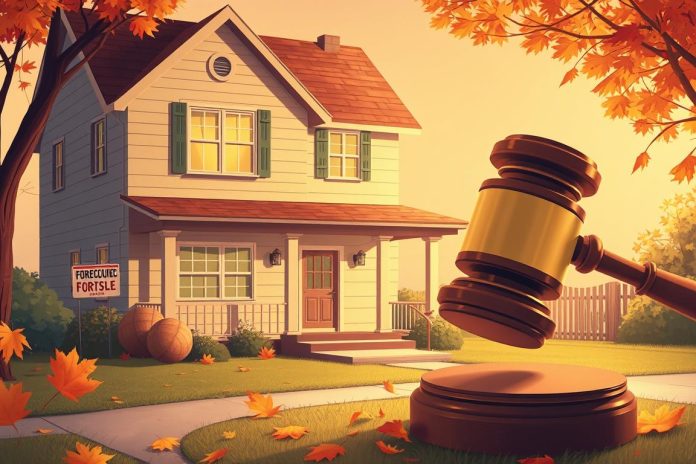In quiet American suburbs, neat rows of homes symbolize the American Dream. But, beneath their well-kept fronts, some houses face a silent danger: the threat of foreclosure. This threat can scare any homeowner, making the risk of losing a home both real and frightening. In a financial crisis, knowing about foreclosure laws is your best defense. By understanding foreclosure, from the dangers of negative equity to state law timelines, you can avoid losing your home1. Learning the right foreclosure prevention tips helps you tackle, and hopefully stop, the risks of foreclosure that catch many off guard.
There’s a 120-day window after missing a mortgage payment that’s crucial. This time is key for actions like finding part-time work or talking to HUD-approved counselors2. Plus, it’s vital to know the Five D’s of Foreclosure: unforeseen events that often lead to losing your home. Understanding these signs and how to defend yourself is essential1.
Key Takeaways
- Foreclosure usually starts 120 days after missing a payment, with a short grace period2.
- Seek help from HUD-approved counselors and stay away from scams2.
- Knowing the difference between judicial and nonjudicial foreclosure is key1.
- Economic downturns causing negative equity are a main reason for foreclosure1.
- Rights for homeowners include disputing mistakes in mortgage payments and finding extra work2.
- Foreclosure laws vary by state, affecting timelines and the buying process1.
- Buying foreclosed homes can be beneficial but requires careful research to avoid hidden problems1.
By understanding these key points, you’re not just preparing to face foreclosure but actively working to prevent it. Your efforts to grasp foreclosure threats and seek foreclosure prevention tips will help you maintain your home and financial security.
The Anatomy of Foreclosure: Understanding the Process
The journey of foreclosure starts when homeowners miss mortgage payments. This leads them into a difficult situation. Our article will help you understand the foreclosure process and the foreclosure dangers you need to know about.
What Triggers a Foreclosure?
Foreclosure doesn’t happen overnight. It comes from ongoing financial issues, like not being able to pay on time. This leads to a warning notice. After this, homes go into what’s called pre-foreclosure. Here, they could be sold directly from the owner. They’re often cheaper than usual because of their condition3.
Understanding Pre-Foreclosure and Your Options
During pre-foreclosure, you have ways to avoid losing your home. Options like short sales or changing your loan terms can help. Short sales let you sell the property for less than its mortgage if it’s worth less than you owe. It’s a way to prevent full foreclosure3.
Judicial vs Nonjudicial Foreclosures
The path of foreclosure can go two ways: judicial foreclosure or nonjudicial foreclosure. Judicial foreclosures involve courts and offer some protection, but take longer. On the other side, nonjudicial foreclosures don’t need court approval. If you stop paying your mortgage, the lender can use a trust deed to foreclose without a judge’s decision4.
The Implications of Recourse and Nonrecourse Loans
If you have a recourse loan and go through foreclosure, you may still owe money afterwards. If the sale doesn’t cover the loan, lenders can demand more money. But, with non-recourse loans, you’re not responsible beyond giving up the property.
Real Estate Owned Properties: What Happens Post-Foreclosure?
Sometimes, no one buys a foreclosed property at auction. Then, it becomes Real Estate Owned (REO), or bank-owned. This marks a sad end for homeowners, losing their property for good3. But investors might see REO properties as good deals. Banks might sell them for less to get them off their hands3.
Homeowner Foreclosure Risks and Defense Strategies
Being faced with foreclosure is incredibly tough. Knowing your rights and the help you can get is key. There are ways to fight back and protect your home during hard times.
Early Warning Signs and How to Respond
Money troubles don’t just show up out of nowhere. If you start missing payments or worry about rates going up, you need to act. Talk to your lender about changing your loan or pausing payments. This can help stop foreclosure before it starts.
Strategies to Prevent Foreclosure and Preserve Homeownership
It’s vital to try everything to keep your home. You could change your loan terms or get advice to learn your rights. Acting fast gives you the best shot at saving your house.
Federal Assistance: Programs Designed to Help
The Making Home Affordable (MHA) Program wants to stabilize housing and keep folks in their homes by reducing payments5. It helps if you’re out of work or owe more than your house is worth5. Getting in touch with the FHA can give you personalized advice and support5.
The Role of Legal Counsel in Foreclosure Defense
Good lawyers can make a big difference in foreclosure cases. They understand complex legal stuff and can fight to stop foreclosure.
Navigating Loan Modifications and Forbearance Agreements
Changing your loan can make payments smaller and easier to handle6. Forbearance lets you pause or reduce payments temporarily, giving you time to fix your money situation6.
Also, 66 million American mortgages are in the MERS database, affecting foreclosure processes6. Knowing if your state makes lenders show proof during foreclosure is important. It could help you fight the foreclosure6.

| Strategy | Description | Contact Information |
|---|---|---|
| MHA Program | Helps lower payments, provides options for various hardships | FHA Outreach Center (800-225-5342) |
| Loan Modification | Reduce rates, principal, or change other terms | Your Lender/Loan Servicer |
| Mortgage Forbearance | Temporary reduction or pause in payments | Your Lender/Loan Servicer |
Conclusion
Understanding how to avoid foreclosure is key to keeping your home. It’s important to know the early signs of trouble and to act fast. This can help you deal with financial problems before they get worse. Foreclosed homes can be much cheaper, saving you about 35%. They range from basic houses to luxury estates7. Yet, buying these properties often involves competition and risks.
Working with real estate experts can really help, especially those who know about foreclosures7. Using services like AmeriSave’s Certified Approval can speed up buying. They offer credit approval quickly, based on an initial credit check7. HUD homes might have lower closing costs and good down payment options7. But don’t skip important steps like property inspections and checking for clear titles. Skipping these can lead to unexpected problems and costs8.
Prevention is the best way to protect your home. Using federal aid, understanding legal options, or changing loan terms can make a big difference. If you’re looking into buying foreclosed properties, do thorough research. Making informed choices is key to financial security and succeeding in real estate78.
FAQ
What Are the Key Factors That Can Lead to Foreclosure?
What Triggers a Foreclosure?
What Is Pre-Foreclosure and What Options Do I Have During This Period?
What Are the Differences Between Judicial and Nonjudicial Foreclosures?
How Do Recourse and Nonrecourse Loans Affect Foreclosure?
What Happens to Properties That Become Real Estate Owned (REO) After Foreclosure?
What Are Some Early Warning Signs of Foreclosure Risk?
What Strategies Can Help Me Avoid Foreclosure and Keep My Home?
What Federal Programs Are Available to Assist Homeowners Facing Foreclosure?
How Can Legal Counsel Assist Me in Foreclosure Defense?
Can Loan Modifications and Forbearance Agreements Really Help Me Avoid Foreclosure?
Source Links
- The Complete Guide to Foreclosure Investing – https://www.propertyradar.com/blog/the-complete-guide-to-foreclosure-investing
- How To Stop Foreclosure | Bankrate – https://www.bankrate.com/mortgages/how-to-avoid-foreclosure/
- Guide to Buying Foreclosures: Step-by-Step – https://pinefinancialgroup.com/blog/how-to-buy-a-foreclosure-a-step-by-step-guide/
- Understanding Mortgage Foreclosure: Recent Events, the Process, and Costs – https://www.everycrsreport.com/files/20080418_RL34232_bb9da8506670ebcc377d9431b328082736850150.pdf
- Avoiding Foreclosure – https://www.hud.gov/topics/avoiding_foreclosure
- Mortgage Foreclosure Defense Strategies to Save Your Home – https://www.debt.org/real-estate/foreclosure-defense/
- Buying a Foreclosed Home: Tips and Considerations – https://www.amerisave.com/buying-a-foreclosed-home/
- Risks and Benefits of Buying a Foreclosed Home or Short Sale – https://www.forsalebyowner.com/blog/title-trauma-know-foreclosures-short-sales


